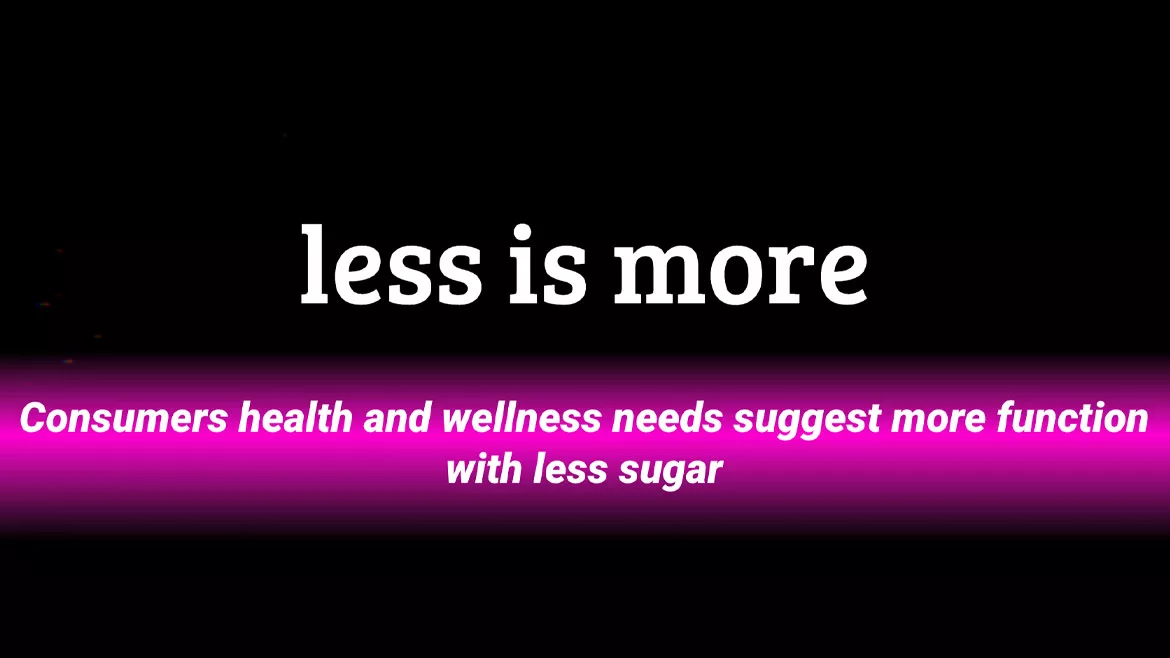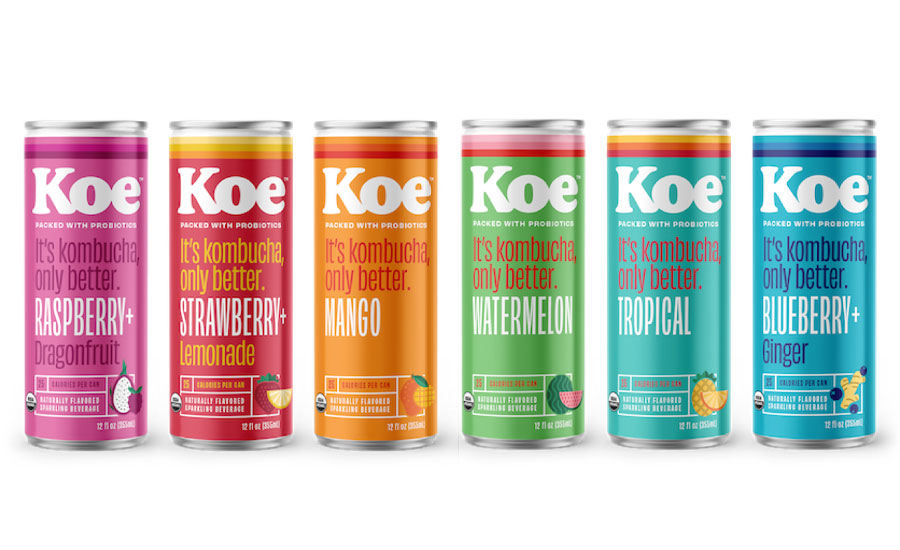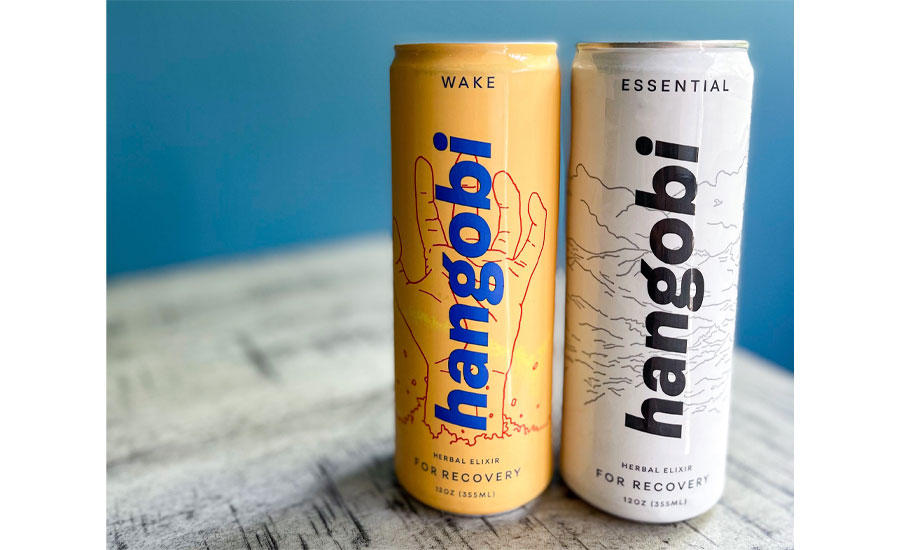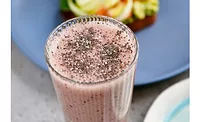Cover Feature
Consumers’ health and wellness needs suggest more function with less sugar
Digestive health, energy cited as top attributes in health beverages

American Olympic diver Greg Louganis is considered by many to be among the greatest divers in the sport thanks in part to the four gold medals that he won at the 1984 and 1988 Summer Olympic Games. In the beverage market, manufacturers are striving for gold as they dive into the plethora of solutions that are fueling functional beverage performance in the name of health and wellness.
“The beverage space has been the market to dive into whether it’s the addition of new functional ingredients or bringing in global flavors, the natural market and its innovation have been leading the beverage market,” says Haleigh Resetar, corporate communications specialist at SPINS, Chicago. “Many consumers are looking for products that are lower in sugar, without dyes, and containing natural flavors when it comes to their beverages; all being driven by this pursuit of overall health and wellness.
“The addition of health focus ingredients including probiotics for digestive health, magnesium for sleep and adaptogens for stress relief, are all influences from the health and wellness community that we are seeing in the beverage space,” she continues.
Whether it’s more functionality, sugar reduction or a combination of the two, products developed with health and wellness in mind have permeated throughout the beverage industry.
“Health and wellness is one of the key drivers of the beverage market today,” says Gary Hemphill, managing director of research at New York-based Beverage Marketing Corporation (BMC). “It touches on all categories. And, to a great extent, it’s driven by younger consumers. The future is bright for healthier beverages.”
Healthy push
As “better-for-you” beverages proliferate, experts note this is thanks to the growing interest in health and wellness from consumers.
Suraksha Rajagopal, head of research and strategy at Minneapolis-based Spoonshot, explains that as consumers push for healthier solutions, more products are being made with health-related claims.
“According to Spoonshot data, interest in health and beverages together has seen a 27% increase in the last 12 months. This is also predicted to grow 10% in the next 12 months. Businesses are seeing an uptick in terms of activity in the healthy space (33%).
Rajagopal notes that several reasons are playing into health and wellness’ position in the beverage market.
“Consumers are pushing for their beverages to be healthier because of a deeper understanding of how diet plays a vital role in our overall health,” Rajagopal explains. “Spoonshot’s data shows that consumer interest in health has gone up significantly in the last few years and continues to remain high.
“Interest in emerging ingredients and alternate forms of medicine has also been increasing,” he continues. “Consumers are looking to use food and beverage to help with chronic issues they face. These are generally non-threatening health conditions such as gut issues, allergies, immune problems, etc.”
SPINS’ Resetar also notes the ease of use that beverages offers when delivering health benefits.
“Many consumers look to beverages as a quick and easy way to get their missing nutrients, similarly to vitamins and supplements,” she says. “Since many shoppers usually drink some sort of beverage during the day, it is easy to replace that with one that has added health benefits or functional ingredients, and with all the different flavors out there, there is endless opportunities for innovation.”

Interest in function
As consumers look to supplement missing nutrients through beverages, experts highlight the range of functionalities that are driving “better-for-you” beverages.
Based on SPINS data, Resetar notes that some of top health focuses for kombucha and other functional beverages are digestive health (up 4.9% totaling $815 million); cold and flu (up 32.1% totaling $60.2 million); energy support (up 15.5% totaling $34.7 million); cognitive health (up 10.5% totaling $16.7 million); cleanse and detox (up 49.3% totaling $9.8 million); mood support (up 40.5% totaling $7.2 million); and immune health (up 22.5% totaling $5.7 million).
“Consumer interest around health focuses is always changing depending on what is going on in the world,” Resetar says. “During the pandemic, products with immune boosting ingredients and claims skyrocketed, energy support and performance products increased as more people began to work out while being at home, and mood support grew as people tried to navigate their new ‘normal.’”
Yes, Resetar notes that now that many pandemic concerns have settled, consumers’ interests have spread to other health focuses.
“Digestive health has been a health focus of interest this year with shoppers wanting to heal their ‘gut’ and microbiome,” Resetar says. “Research has shown that a healthy digestive system can improve immunity, reduce inflammation, and increase energy.”
Spoonshot’s Rajagopal also calls attention to digestive health and its growing prevalence in the beverage market.
“When comparing some of the most prominent health and wellness trends in terms of interest from consumers we found that interest in gut health far outweighs other trends,” Rajagopal says. “This trend is similar when looking at products in the beverage category. There are about eight times more products with the gut health claim versus immune boosting claim and three times more products when compared to the brain health claim.
“When looking at all beverage products, the top health benefits shown on front of pack, include antioxidant, energy, weight loss, detoxification and gut health,” he continues. “Out of these, gut health has shown the highest increase in interest amongst consumers.”
Rajagopal explains that emerging scientific evidence that spotlights the relationship between gut health and the brain, immune system and respiratory system supported the rise in consumer interest.
“Spoonshot’s data indicates that out of all the health concerns, gut health took third position in social media conversations, while weight loss and detoxification took first and second positions respectively,” Rajagopal says. “Some of the topics linked with gut health in social media conversations include digestive health, nutrition, healthy lifestyle, probiotics, wellness, microbiome, vegan, gluten free, plant based, digestion, IBS.”
Brain health also has been a functional attribute that health-and-wellness focused consumers are pursuing.
“Cognitive health is another health focus that saw a post-pandemic increase in interest for a variety of reasons, including consumers who were now working from home and in need of products to keep them focused and alert in their new work environment full of distractions,” SPINS’ Resetar notes.
“Consumers are looking to use food and beverage to help with chronic issues they face. These are generally non-threatening health conditions such as gut issues, allergies, immune problems, etc.”
-Suraksha Rajagopal, head of research and strategy at Minneapolis-based Spoonshot
Rajagopal notes that cognitive health is gaining more traction among consumers, “with Spoonshot data suggesting that consumer media interest in cognitive health grew 37% over the period January-December 2021.”
“Interestingly enough, our data also highlights that consumer concerns over brain fog grew 13% over the same period,” he says. “This could be attributed to the post-recovery effects of COVID-19, with many people having noticeable problems with attention, memory and executive function.
“Memory, energy and focus are some of the other popular topics that consumers associate with brain health in social media conversations,” Rajagopal continues. “However, our data indicates that the penetration of beverages with brain health benefits is less than 1% across all beverage launches.”
Often associated with cognitive function, focus and energy-enhancing beverages are one of the top functions on the market.
“Energy is the biggest functional need state,” BMC’s Hemphill says. “Not only are there energy drinks but crossover energy products have emerged in recent years. Energy sodas or energy coffees are examples of this.”

Image courtesy of Hangobi
Vehicles of delivery
With healthy beverages in high demand, experts note that the type of beverages that manufacturers are utilizing are as diverse as the functions.
“We’ve seen health and wellness attributes emerge in all beverage categories ― even categories like soda that aren’t traditionally associated with health and wellness,” Hemphill says. “Health and wellness can be about what’s in a product but also what’s not in a product.”
SPINS’ Resetar also notes carbonated soft drinks have stepped in the health-and-wellness arena, but notes that other carbonated beverages, like waters and kombuchas, also are very popular formats.
Resetar adds that the rise of non-alcohol drinks is not just helping consumers reduce or eliminate alcohol consumption, but often contain functional ingredients.
“One category of beverages that many consumers are opting for now is nonalcoholic beverages whether that be mixed drinks or spirits,” she says. “These mocktail-inspired beverages are giving consumers a way to celebrate an occasion while staying on their dietary goals and avoiding alcohol. Many of these products will also include functional ingredients to add health benefits.”
Given the diversity of the beverage solutions in the United States, the consumer audiences and their need states mirror that diversity.
“The beverage space has several different niche audiences, [including] gamers,” Resetar says. “Beverage-makers are delivering health and wellness into these spaces with beverages that include health focuses relatable to gamers including joint health, eye health and energy support. Even new ingredients such as Noolvl have been introduced, designed with gamers in mind.”
Given the place that health and wellness occupies in new product development, experts anticipate this will only continue to grow.
“We believe the majority of beverage innovation in the future will come from products that offer health and wellness benefits,” BMC’s Hemphill says. “Digestive health, immunity, protein are all better for you trends that we expect to become more popular. Further, we believe established categories like energy will continue to grow.”
Looking for a reprint of this article?
From high-res PDFs to custom plaques, order your copy today!




